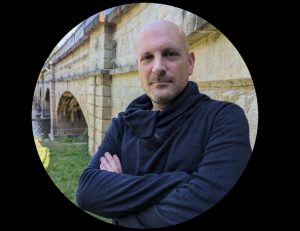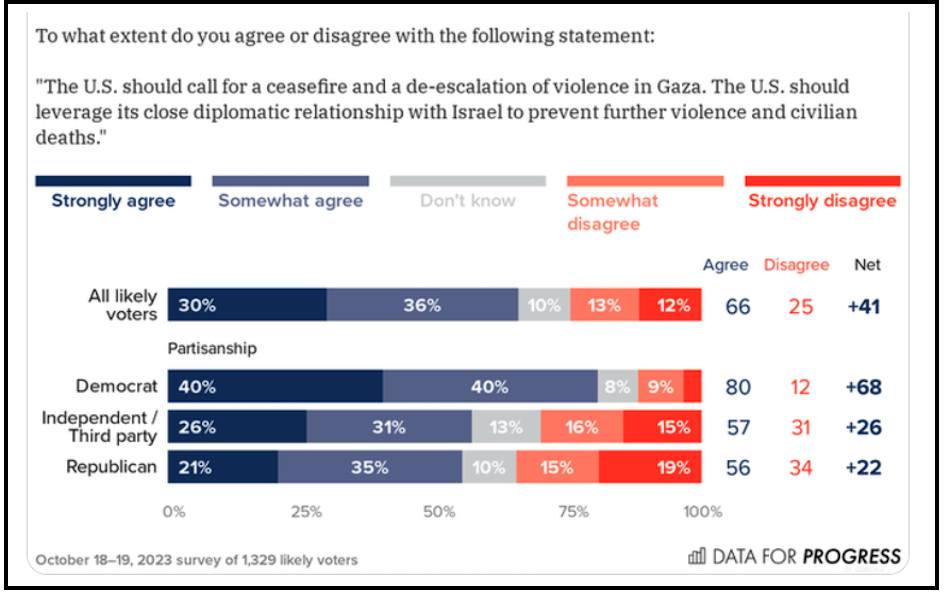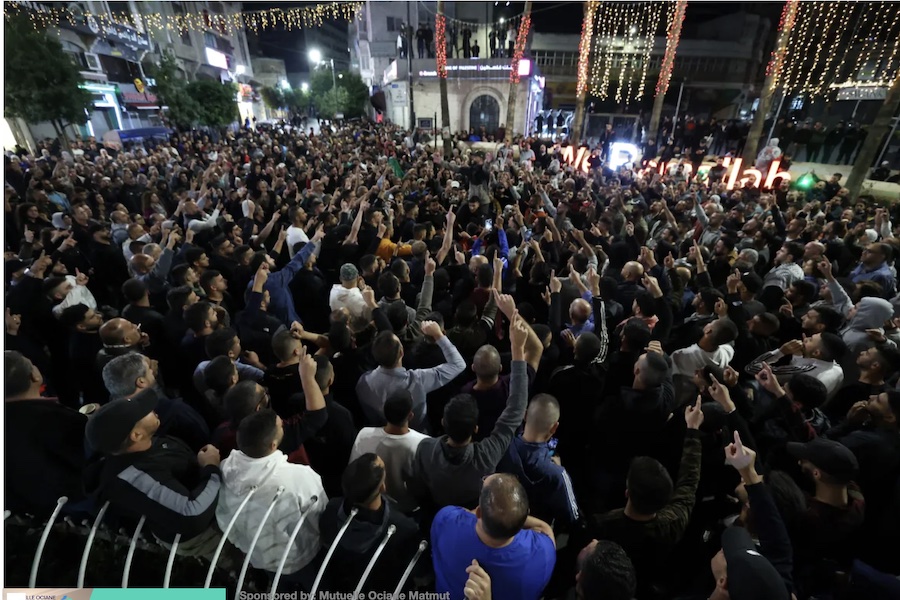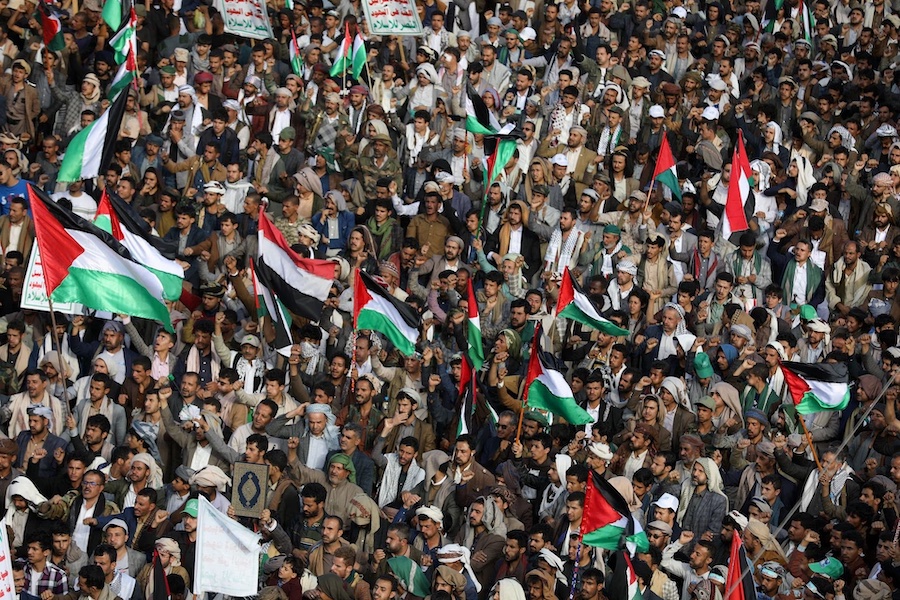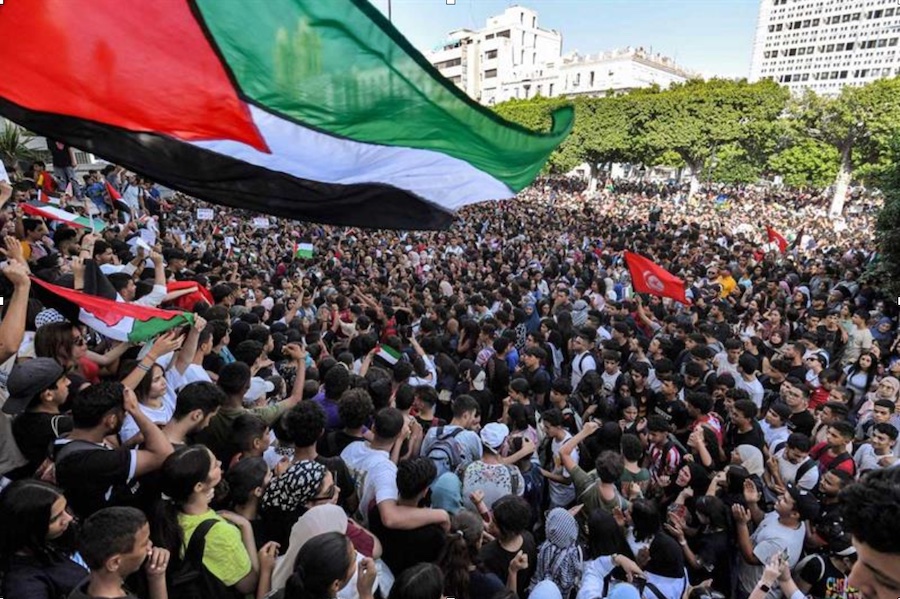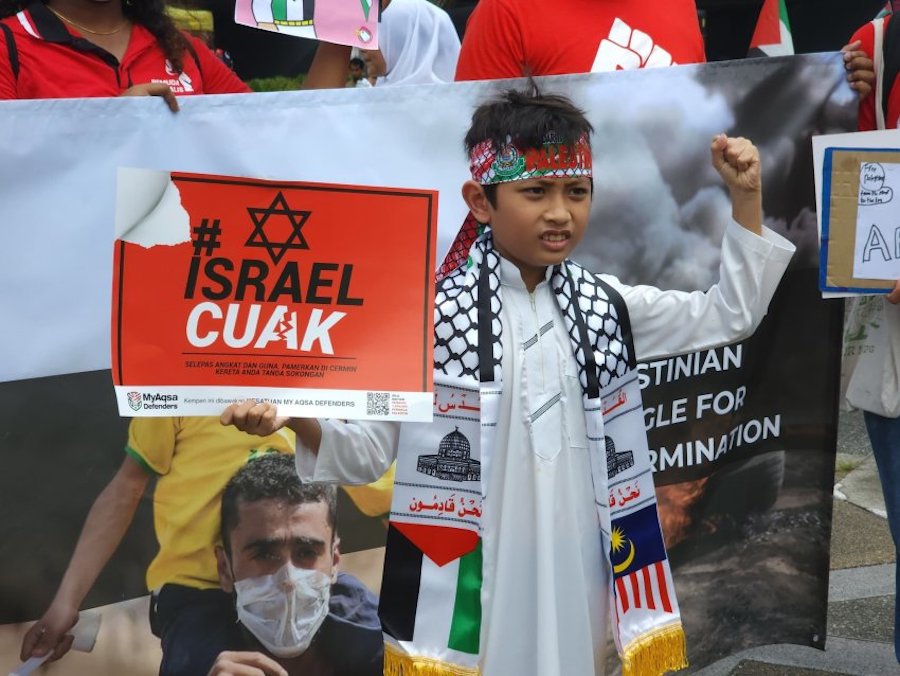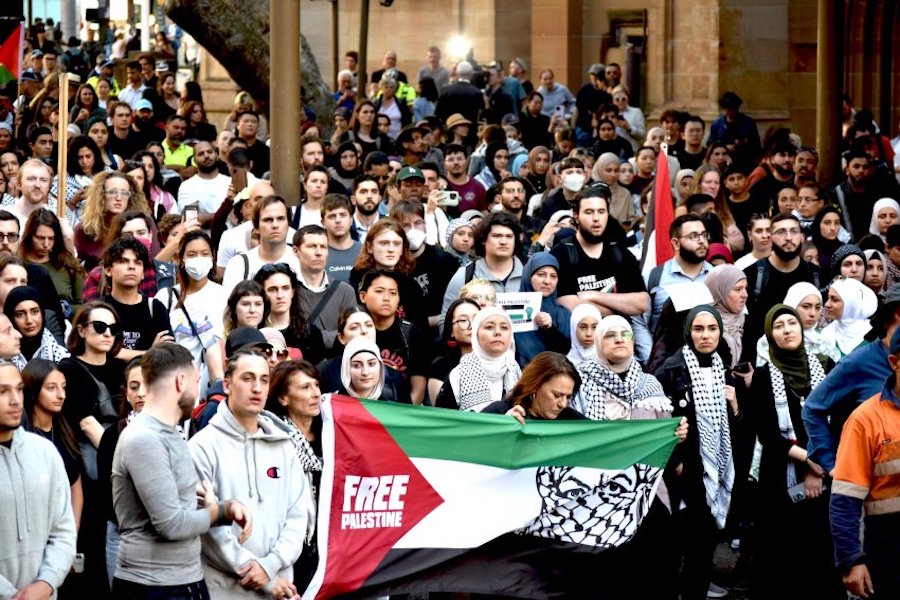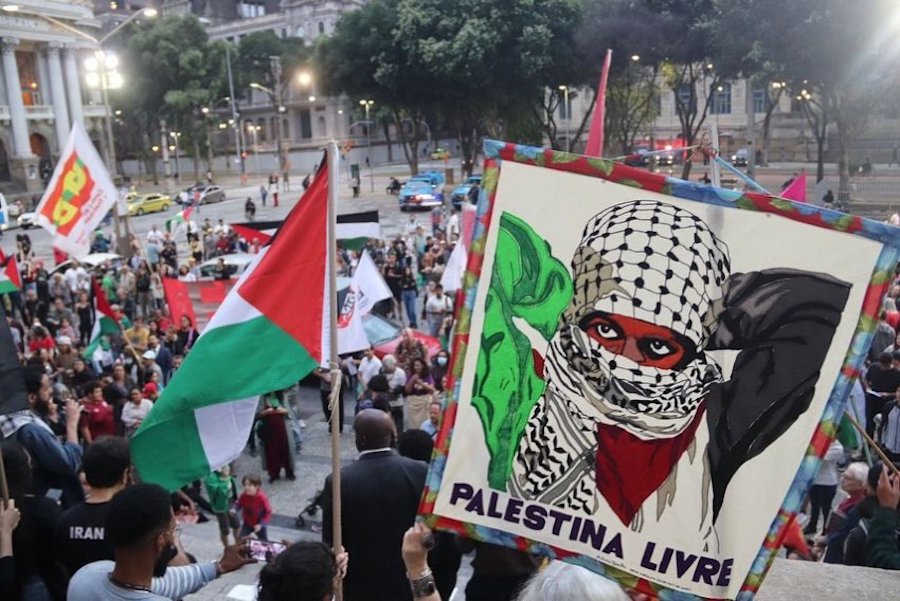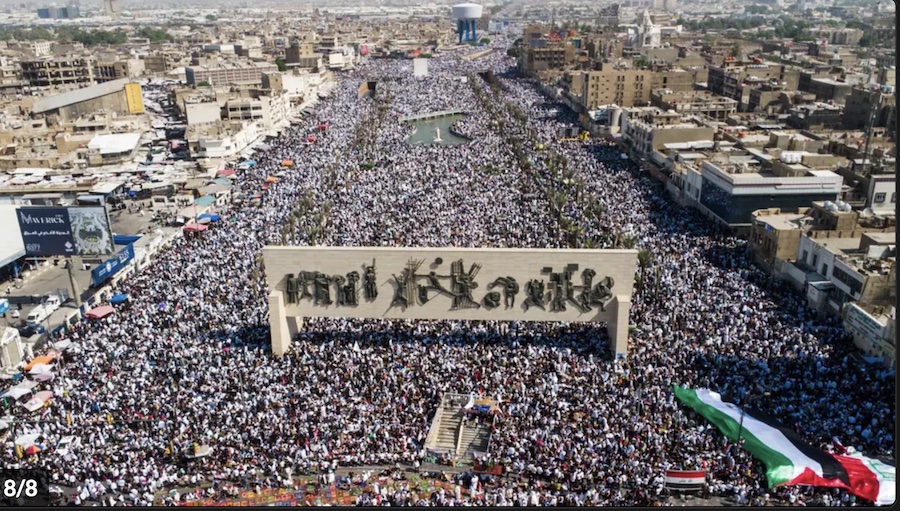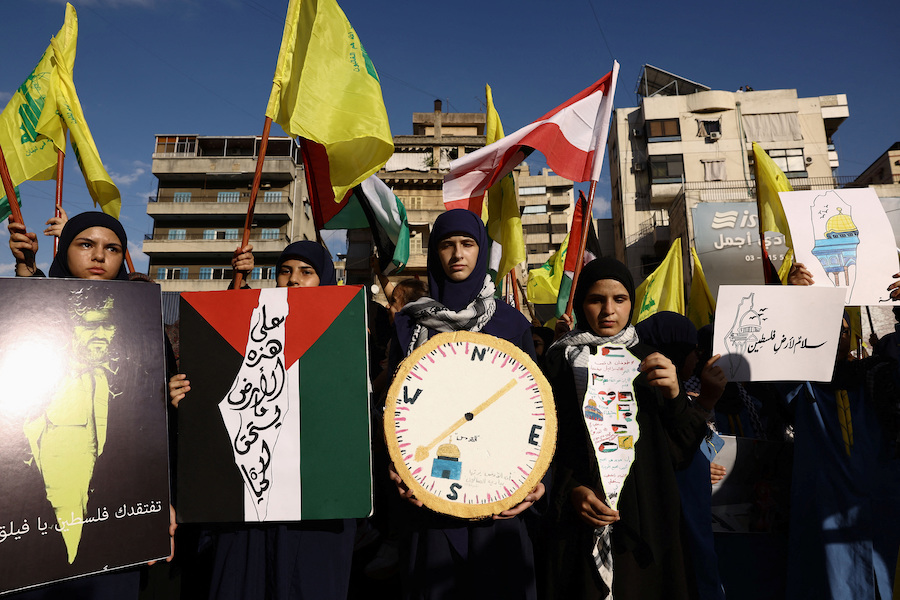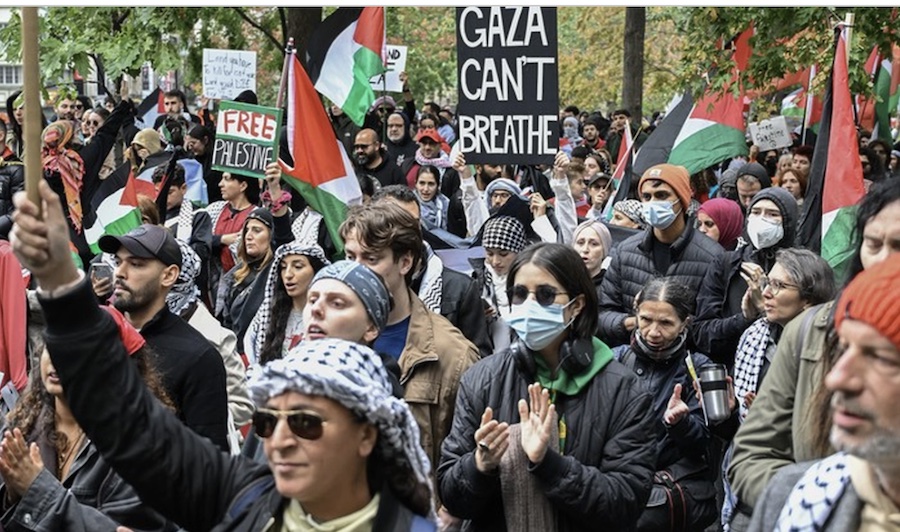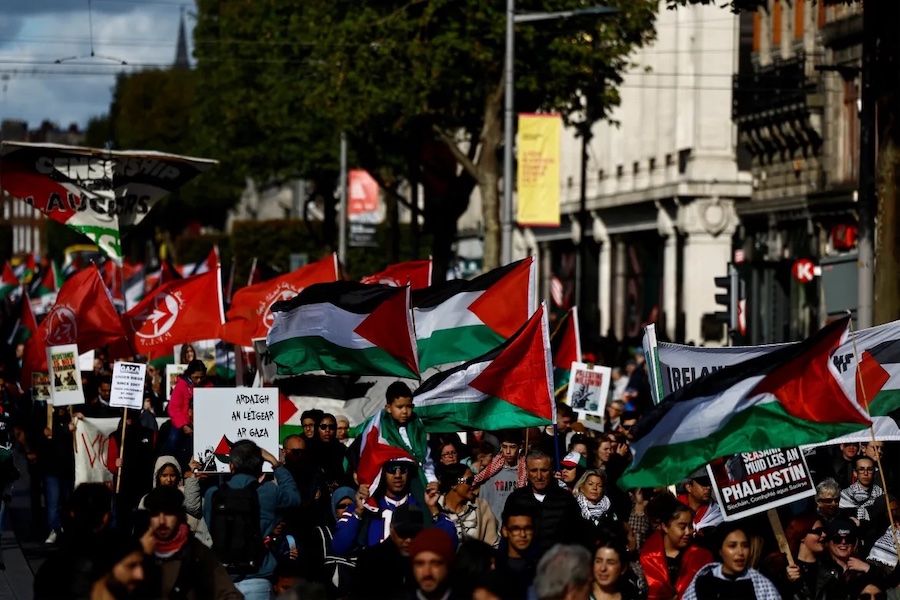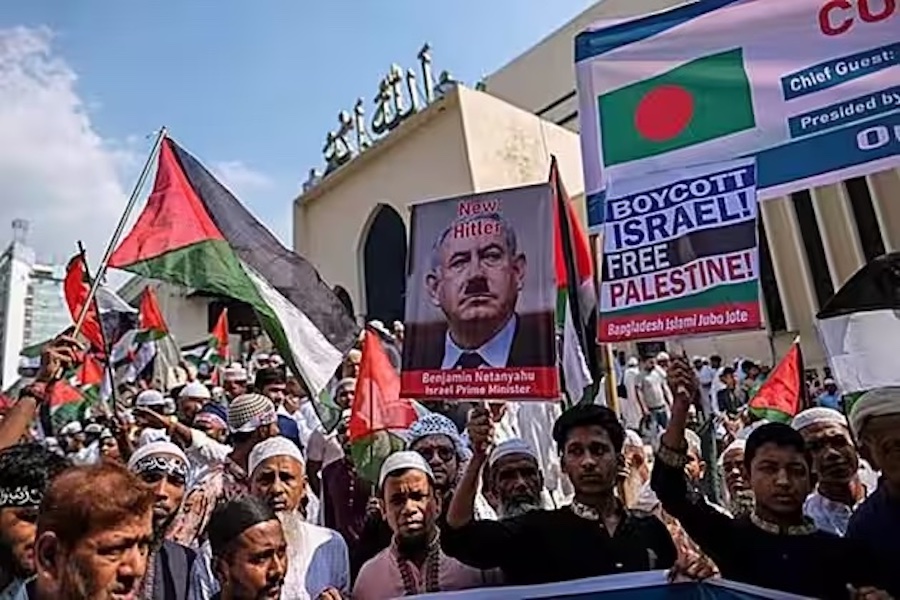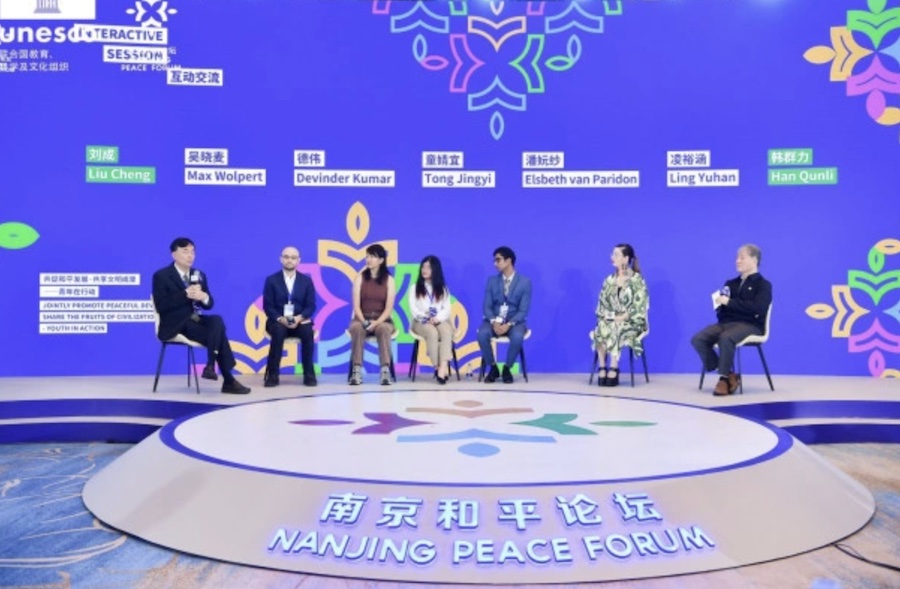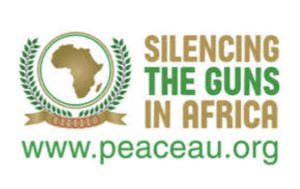. . HUMAN RIGHTS . .
An article from Amnesty International
As Israeli forces continue to intensify their cataclysmic assault on the occupied Gaza Strip, Amnesty International has documented unlawful Israeli attacks, including indiscriminate attacks, which caused mass civilian casualties and must be investigated as war crimes.

© Ahmad Hasaballah/Getty Images
The organization spoke to survivors and eyewitnesses, analysed satellite imagery, and verified photos and videos to investigate air bombardments carried out by Israeli forces between 7 and 12 October, which caused horrific destruction, and in some cases wiped out entire families. Here the organization presents an in-depth analysis of its findings in five of these unlawful attacks. In each of these cases, Israeli attacks violated international humanitarian law, including by failing to take feasible precautions to spare civilians, or by carrying out indiscriminate attacks that failed to distinguish between civilians and military objectives, or by carrying out attacks that may have been directed against civilian objects.
“In their stated intent to use all means to destroy Hamas, Israeli forces have shown a shocking disregard for civilian lives. They have pulverized street after street of residential buildings killing civilians on a mass scale and destroying essential infrastructure, while new restrictions mean Gaza is fast running out of water, medicine, fuel and electricity. Testimonies from eyewitness and survivors highlighted, again and again, how Israeli attacks decimated Palestinian families, causing such destruction that surviving relatives have little but rubble to remember their loved ones by,” said Agnès Callamard, Amnesty International’s Secretary General.
“The five cases presented barely scratch the surface of the horror that Amnesty has documented and illustrate the devastating impact that Israel’s aerial bombardments are having on people in Gaza. For 16 years, Israel’s illegal blockade has made Gaza the world’s biggest open-air prison – the international community must act now to prevent it becoming a giant graveyard. We are calling on Israeli forces to immediately end unlawful attacks in Gaza and ensure that they take all feasible precautions to minimize harm to civilians and damage to civilian objects. Israel’s allies must immediately impose a comprehensive arms embargo given that serious violations under international law are being committed.”
Since 7 October Israeli forces have launched thousands of air bombardments in the Gaza Strip, killing at least 3,793 people, mostly civilians, including more than 1,500 children, according to the Palestinian Ministry of Health in Gaza. Approximately 12,500 have been injured and more than 1,000 bodies are still trapped beneath the rubble.
In Israel, more than 1,400 people, most of them civilians, have been killed and some 3,300 others were injured, according to the Israeli Ministry of Health after armed groups from the Gaza Strip launched an unprecedented attack against Israel on 7 October. They fired indiscriminate rockets and sent fighters into southern Israel who committed war crimes including deliberately killing civilians and hostage-taking. The Israeli military says that fighters also took more than 200 civilian hostages and military captives back to the Gaza Strip.
“Amnesty International is calling on Hamas and other armed groups to urgently release all civilian hostages, and to immediately stop firing indiscriminate rockets. There can be no justification for the deliberate killing of civilians under any circumstances,” said Agnès Callamard.
Hours after the attacks began, Israeli forces started their massive bombardment of Gaza. Since then, Hamas and other armed groups have also continued to fire indiscriminate rockets into civilian areas in Israel in attacks that must also be investigated as war crimes. Meanwhile in the occupied West Bank, including East Jerusalem, at least 79 Palestinians, including 20 children, have been killed by Israeli forces or settlers amid a spike in excessive use of force by the Israeli army and an escalation in state-backed settler violence, which Amnesty International is also investigating.
Amnesty International is continuing to investigate dozens of attacks in Gaza. This output focuses on five unlawful attacks which struck residential buildings, a refugee camp, a family home and a public market. The Israeli army claims it only attacks military targets, but in a number of cases Amnesty International found no evidence of the presence of fighters or other military objectives in the vicinity at the time of the attacks. Amnesty International also found that the Israeli military failed to take all feasible precautions ahead of attacks including by not giving Palestinian civilians effective prior warnings – in some cases they did not warn civilians at all and in others they issued inadequate warnings.
“Our research points to damning evidence of war crimes in Israel’s bombing campaign that must be urgently investigated. Decades of impunity and injustice and the unprecedented level of death and destruction of the current offensive will only result in further violence and instability in Israel and the Occupied Palestinian Territories,” said Agnès Callamard.
“It is vital that the Office of the Prosecutor of the International Criminal Court urgently expedites its ongoing investigation into evidence of war crimes and other crimes under international law by all parties. Without justice and the dismantlement of Israel’s system of apartheid against Palestinians, there can be no end to the horrifying civilian suffering we are witnessing.”
The relentless bombardment of Gaza has brought unimaginable suffering to people who are already facing a dire humanitarian crisis. After 16 years under Israel’s illegal blockade, Gaza’s healthcare system is already close to ruin, and its economy is in tatters. Hospitals are collapsing, unable to cope with the sheer number of wounded people and desperately lacking in life-saving medication and equipment.
Amnesty International is calling on the international community to urge Israel to end its total siege, which has cut Gazans off from food, water, electricity and fuel and urgently allow humanitarian aid into Gaza. They must also press Israel to lift its longstanding blockade on Gaza which amounts to collective punishment of Gaza’s civilian population, is a war crime and is a key aspect of Israel’s system of apartheid. Finally, the Israeli authorities must rescind their “evacuation order” which may amount to forced displacement of the population.
Gaza’s civilians pay the price
Amnesty International investigated five Israeli attacks on the Gaza Strip, which took place between 7 and 12 October. Between 2012 and 2022, the Israeli authorities have denied, or failed to respond to, all of Amnesty International’s requests to gain access to Gaza. For this reason, the organization worked with a Gaza-based fieldworker who visited attack sites and collected testimony and other evidence. Amnesty International researchers interviewed 17 survivors and other eyewitnesses, as well as six relatives of victims over the phone, for the five cases included in this report. The organization’s Crisis Evidence Lab analysed satellite imagery and verified photos and videos of attack sites.
In the five cases described below Amnesty International found that Israeli forces carried out attacks that violated international humanitarian law, including by failing to take feasible precautions to spare civilians, or by carrying out indiscriminate attacks that failed to distinguish between civilians and military objectives, or by carrying out attacks that may have been directed against civilian objects.
Under international humanitarian law, all parties to the conflict must, at all times, distinguish between civilians and civilian objects and fighters and military objectives and direct their attacks only at fighters and military objectives. Direct attacks on civilians or civilian objects are prohibited and are war crimes. Indiscriminate attacks – those which fail to distinguish as required – are also prohibited. Where an indiscriminate attack kills or injuries civilians, it amounts to a war crime.
Disproportionate attacks, those where the expected harm to civilians and civilian objects is excessive in comparison with the “concrete and direct military advantage anticipated,” also are prohibited. Knowingly launching a disproportionate attack is a war crime.
Whole families wiped out
At around 8:20pm on 7 October, Israeli forces struck a three-storey residential building in the al-Zeitoun neighbourhood of Gaza City, where three generations of the al-Dos family were staying. Fifteen family members were killed in the attack, seven of them children. The victims include Awni and Ibtissam al-Dos, and their grandchildren and namesakes Awni, 12, and Ibtissam, 17; and Adel and Ilham al-Dos and all five of their children. Baby Adam, just 18 months old, was the youngest victim.
Mohammad al-Dos, whose five-year-old son Rakan was killed in the attack, told Amnesty International:
“Two bombs fell suddenly on top of the building and destroyed it. My wife and I were lucky to survive because we were staying on the top floor. She was nine-months pregnant and gave birth at al-Shifa hospital a day after the attack. Our entire family has been destroyed.”
Amnesty International interviewed a neighbour whose home had been damaged in the attack. Like Mohammad al-Dos, he said that he had not received warning from Israeli forces, and nor had anyone in his family.
“It was sudden, boom, nobody told us anything,” he said.
The fact that the building was full of civilians at the time of the air strike further supports the testimony of survivors who said Israeli forces did not issue any warnings. It took relatives, neighbours and rescue teams more than six hours to remove the bodies from beneath the rubble.
Amnesty International’s research has found no evidence of military targets in the area at the time of the attack. If Israeli forces attacked this residential building knowing that there were only civilians present at the time of the attack, this would be a direct attack on a civilian object or on civilians, which are prohibited and constitute war crimes. Israel offered no explanation on the incident. It is incumbent on the attacker to prove the legitimacy of their military conduct. Even if Israeli forces targeted what they considered a military objective, attacking a residential building, at a time when it was full of civilians, in the heart of a densely populated civilian neighbourhood, in a manner that caused this number of civilian casualties and degree of destruction would be indiscriminate. Indiscriminate attacks that kill and injure civilians are war crimes.
On 10 October, an Israeli air strike on a family home killed 12 members of the Hijazi family and four of their neighbours, in Gaza City’s al-Sahaba Street. Three children were among those killed. The Israeli military stated that they struck Hamas targets in the area but gave no further information and did not provide any evidence of the presence of military targets.
Amnesty International’s research has found no evidence of military targets in the area at the time of the attack.
Amnesty International spoke to Kamal Hijazi, who lost his sister, his two brothers and their wives, five nieces and nephews, and two cousins in the attack. He said:
“Our family home, a three-storey house, was bombed at 5:15 pm. It was sudden, without any warning; that is why everyone was at home.”
Ahmad Khalid Al-Sik, one of the Hijazi family’s neighbours, was also killed. He was 37 years old and had three young children, who were all injured in the attack. Ahmad’s father described what happened:
“I was at home in our apartment and Ahmad was downstairs when the house opposite [belonging to the Hijazi family] was bombed, and he was killed. He was going to have his hair cut at the barber, which is next to the entrance of our building. When Ahmad left to go get a haircut, I could not imagine that I would not see him again. The bombing was sudden, unexpected. There was no warning; people were busy with their daily tasks.”
(continued in right column)
Question related to this article:
How can war crimes be documented, stopped, punished and prevented?
(continued from left column)
The barber who was going to cut Ahmad’s hair was also killed.
According to Amnesty International’s findings there were no military objectives in the house or its immediate vicinity, this indicates that this may be a direct attack on civilians or on a civilian object which is prohibited and a war crime.
Inadequate warnings
In the cases documented by Amnesty International, the organization repeatedly found that the Israeli military had either not warned civilians at all, or issued warnings which were inadequate. In some instances, they informed a single person about a strike which affected whole buildings or streets full of people or issued unclear “evacuation” orders which left residents confused about the timeframe. In no cases did Israeli forces ensure civilians had a safe place to evacuate to. In one attack on Jabalia market attack, people had left their homes in response to an “evacuation” order, only to be killed in the place to which they had fled.
On 8 October, an Israeli air strike struck the Nuseirat refugee camp in the centre of the Gaza Strip, killing Mohammed and Shuruq al-Naqla, and two of their children, Omar, three, and Yousef, five, and injuring their two-year-old daughter Mariam and their three-year-old nephew Abdel Karim. Around 20 other people were also injured in the strike.
Ismail al-Naqla, Mohammed’s brother and the father of Abdel Karim, told Amnesty International that their next-door neighbour received a call from the Israeli military at around 10:30am, warning that his building was about to be bombed. Ismail and Mohammed and their families left the building immediately, as did their neighbours. By 3:30pm, there had been no attack, so the al-Naqlas and others went home to collect necessities. Ismail explained that they had thought it would be safe to do so as five hours had elapsed since the warning, though they planned to leave again very quickly.
But as they were returning to their apartments, a bomb struck the building next door, destroying the al-Naqlas’ home and damaging others nearby. Mohammed and his family were still in the courtyard of their building when they were killed. Ismail described seeing part of his five-year-old nephew Yousef’s brain “outside of his head” and said that three-year-old Omar’s body could not be recovered from under the rubble until the next day. He told Amnesty International that Mariam and Abdel Karim, the two surviving children, were released from hospital quickly as Gaza’s hospitals are overwhelmed with the volume of casualties.
Giving a warning does not free armed forces from their other obligations under international humanitarian law. Particularly given the time that had elapsed since the warning was issued, those carrying out the attack should have checked whether civilians were present before proceeding with the attack. Furthermore, if, as appears, this was a direct attack on a civilian object, this would constitute a war crime.
‘Everyone was looking for their children’
At around 10:30am on 9 October, Israeli air strikes hit a market in Jabalia refugee camp, located a few kilometres north of Gaza City, killing at least 69 people. The market street is known to be one of the busiest commercial areas in northern Gaza. That day it was even more crowded than usual, as it was filled with thousands of people from nearby areas who had fled their homes empty-handed earlier that morning after receiving text messages from the Israeli army.
Amnesty’s Crisis Evidence Lab reviewed six videos showing the aftermath of the airstrike on Jabalia camp market. The images show a densely populated area with multi-storey buildings. Videos of the aftermath and satellite imagery show at least three multi-storey buildings completely destroyed and several structures in the surroundings heavily damaged. Numerous deceased bodies are also seen under the rubble in the graphic footage.
According to the Israeli military, they were targeting “a mosque in which Hamas members had been present” when they struck Jabalia market, but they have provided no evidence to substantiate their claim. Regardless, membership in a political group does not in itself make an individual targetable. Satellite imagery analysed by Amnesty International showed no mosque in the immediate vicinity of the market street.
Based on witness testimony, satellite imagery, and verified videos, the attack, which resulted in high civilian casualties was indiscriminate and must be investigated as a war crime.
Imad Hamad, aged 19, was killed in the strike on the Jabalia market while he was on his way to buy bread and mattresses for the family. His father, Ziyad Hamad, described to Amnesty International how a day earlier their family had left their home in Beit Hanoun after receiving a warning message from the Israeli army, and had walked almost five kilometres to a UNRWA-run school, which was operating as a shelter, in Jabalia camp.
On the walk, his son, Imad, had carried his toddler brother on his shoulders. The next day, Ziyad told Amnesty International, he was carrying Imad’s dead body on his own shoulders, taking his son to be buried.
Ziyad described the hellish scenes he encountered at the morgue where he found his son’s body, along with many others.
“The bodies were burned, I was scared of looking. I didn’t want to look, I was scared of looking at Imad’s face. The bodies were scattered on the floor. Everyone was looking for their children in these piles. I recognized my son only by his trousers. I wanted to bury him immediately, so I carried my son and got him out. I carried him.”
When Amnesty International spoke to Ziyad and his displaced family, they were at a UNRWA-run school which was sheltering displaced people. He said there were no basic services or sanitation, and that they had no mattresses.
Ziyad’s despair at the injustices he has suffered is palpable.
“What did I do to deserve this?” he asked.
“To lose my son, to lose my house, to sleep on the floor of a classroom? My children are wetting themselves, of panic, of fear, of cold. We have nothing to do with this. What fault did we commit? I raised my child, my entire life, for what? To see him die while buying bread.”
While Amnesty’s researcher was talking to Ziyad over the phone, another air strike hit
nearby.
Since Amnesty researchers interviewed Ziyad on 10 October, conditions for internally displaced people have deteriorated further, due to the scale of the displacement and the extent of the destruction and the devastating effects of the total blockade imposed since 9 October. According to the United Nations Office for the Coordination of Humanitarian Affairs, the number of internally displaced people in Gaza had reached 1 million by 19 October, including over 527,500 people who are staying in UNRWA emergency shelters in central and southern Gaza.
‘We cannot even count our dead’
On 10 October an Israeli air strike hit a six-storey building in Sheikh Radwan, a district of Gaza City, at 4:30pm. The strike completely destroyed the building and killed at least 40 civilians.
Satellite imagery suggests damage to buildings on this street sometime between 12:11UTC on 10 October and 7:30UTC on 11 October. The Crisis Evidence Lab geolocated two videos posted to social media that corroborate the destruction of homes in Sheikh Radwan. One of the videos, which was posted online on 10 October, shows people pulling the body of a dead infant from the rubble.
Amnesty International spoke to Mahmoud Ashour whose daughter, Iman, and her four children, Hamza, six months, Ahmad, two years, Abdelhamid six, and Rihab, eight, were all killed in the attack.
He said:
“My daughter and her children came here to seek safety because this area was relatively safe in previous attacks. But I couldn’t protect them, I have no trace left of my daughter.”
Mahmoud described the extent of the devastation:
“I’m talking to you now as I’m trying to remove the rubble with my hands. We cannot even count our dead.”
Fawzi Naffar, 61, said that 19 of his family members, including his wife, children and grandchildren, were all killed in the air strike. When Amnesty International spoke to Fawzi five days after the air strike, he had only been able to retrieve the remains of his daughter-in-law and his “son’s shoulder.”
Amnesty International’s research found that a Hamas member had been residing on one of the floors of the building, but he was not there at the time of the air strike. Membership in a political group does not itself make an individual a military target.
Even if that individual was a fighter, the presence of a fighter in a civilian building does not transform that building or any of the civilians therein into a military objective. International humanitarian law requires Israeli forces to take all feasible precautions to minimise harm to civilians and civilian property, including by cancelling or postponing the attack if it becomes apparent that it would be indiscriminate or otherwise unlawful.
These precautions were not taken ahead of the air strike in Sheikh Radwan. The building was known to be full of civilian residents, including many children, and the danger to them could have been anticipated. This is an indiscriminate attack which killed and injured civilians and must be investigated as a war crime.
Amnesty International is calling on;
The Israeli authorities to:
° Immediately end unlawful attacks and abide by international humanitarian law; including by ensuring they take all feasible precautions to minimize harm to civilians and damage to civilian objects and refraining from direct attacks on civilians and civilian objects, indiscriminate and disproportionate attacks.
° Immediately allow unimpeded delivery of humanitarian aid to Gaza’s civilians.
° Urgently lift its illegal blockade on Gaza, which amounts to collective punishment and is a war crime, in the face of the current devastation and humanitarian imperatives.
° Rescind their appalling “evacuation” order, which has left more than one million people displaced.
° Grant immediate access to the Independent Commission of Inquiry on the Occupied Palestinian Territory to carry out investigations, including collecting time sensitive evidence and testimonies.
The international community and particularly Israel’s allies, including EU member states, the US and the UK, to:
° Take concrete measures to protect Gaza’s civilian population from unlawful attacks.
° Impose a comprehensive arms embargo on all parties to the conflict given _ that serious violations amounting to crimes under international law are being committed. States must refrain from supplying Israel with arms and military materiel, including related technologies, parts and components, technical assistance, training, financial or other assistance. They should also call on states supplying arms to Palestinian armed groups to refrain from doing so.
° Refrain from any statement or action that would, even indirectly, legitimize Israel’s crimes and violations in Gaza.
° Pressure Israel to lift its illegal 16-year blockade of the Gaza strip which amounts to collective punishment of Gaza’s population, is a war crime and is a key aspect of Israel’s apartheid system.
° Ensure the International Criminal Court’s ongoing investigation into the situation of Palestine receives full support and all necessary resources.
The Office of the Prosecutor of the International Criminal Court to:
Urgently expedite its ongoing investigation in the situation of Palestine, examining alleged crimes by all parties, and including the crime against humanity of apartheid against Palestinians.
Hamas and other armed groups to:
Immediately end deliberate attacks on civilians, the firing of indiscriminate rockets, and hostage-taking. They must release civilian hostages unconditionally and immediately.

